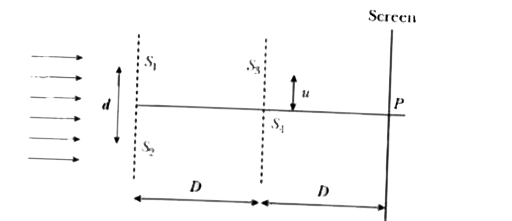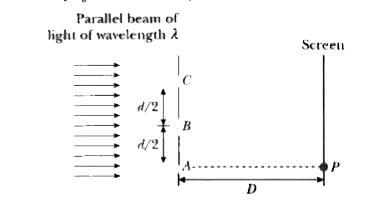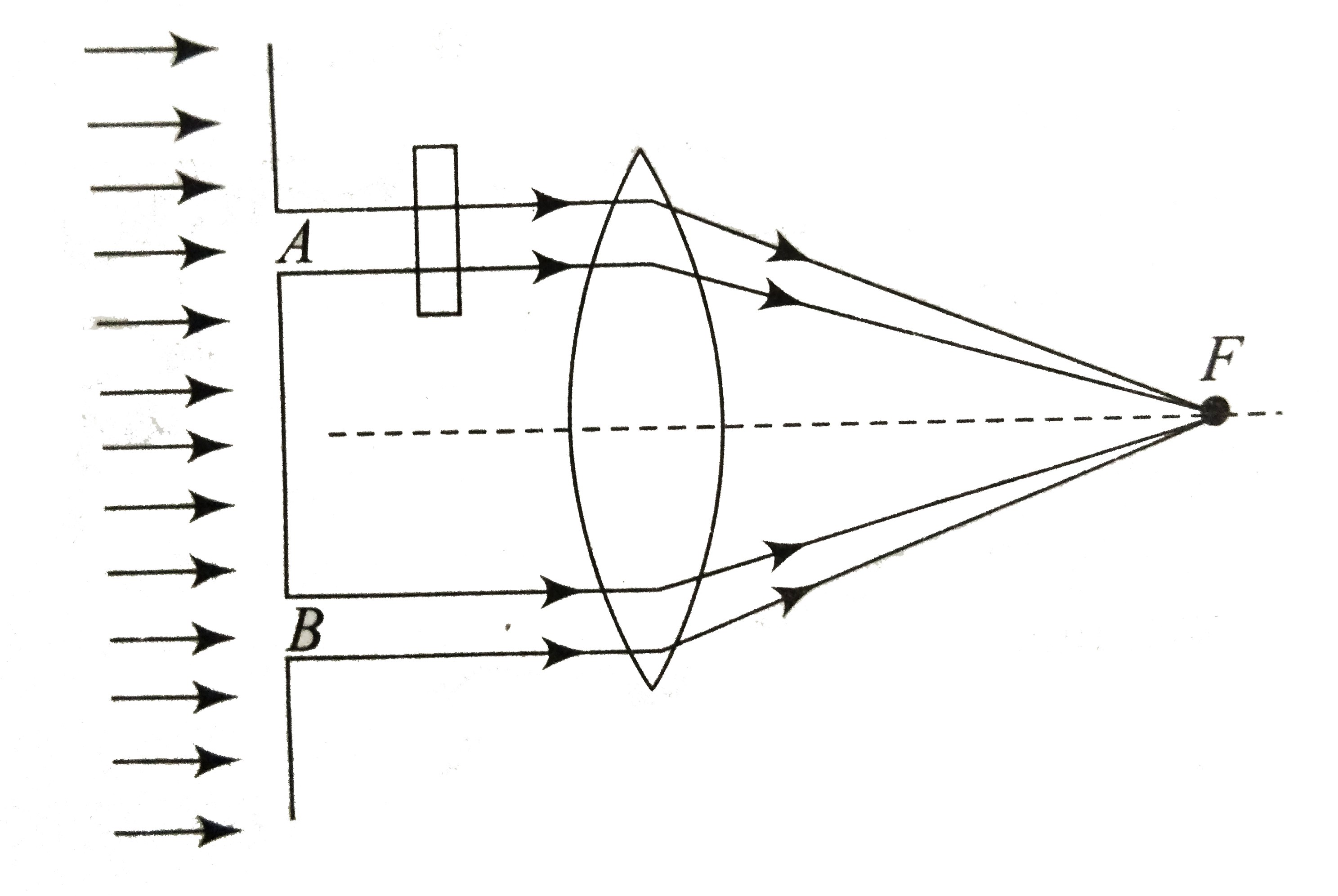Complete Solutions to PRACTICE QUESTIONS (Integer Type) of chapter INTERFERENCE AND DIFFRACTION of Class 12 book with complete answers and questions
| Class 12 | PHYSICS |
| Chapter | INTERFERENCE AND DIFFRACTION |
| RESNICK AND HALLIDAY | PRACTICE QUESTIONS (Integer Type) |
| Number Of Questions | 6 |
| Academic Year | 2023-24 |
In the arrangement shown in the following figure, the wavelength of light used is `lambda`. The distance between slits `S_(1)` and `S_(2)` is d (« D). The distance between `S_(3)` and `S_(4)` is `u=lambda D // 3d`. If the ratio of maximum to minimum intensity observed on screen is k. Find k.

View SolutionLight used in a Young's double-slit experiment consists of two wavelengths 450 nm and 720 nm. In the interference pattern, eighth maximum of the first coincides with the mth maximum of the second. What is m?
View SolutionIn YDSE, `d = 2 mm, D = 2 m,` and `lambda = 500 nm`. If intensities of two slits are `I_(0)` and `9I_(0)`, then find intensity at `y = (1)/(6) mm`.
View SolutionFor the situation depicted in the following figure, `BP - AP = lambda // 3` and D » d. The slits are of equal widths, having intensity `I_(0)`. If the intensity of Pis `kI_(0)`, find k.

View SolutionA thin glass plate of thickness `t` and refractive index `mu` is between screen &one of the slits in young's experiment.if the intensity at the center of the screen is `I` ,was the intensity at the same point prior to the introduction of the sheet.
(b) One slit of a young's experiment is covered by a glass plate `(mu_(1)=1.4)` and the other by another glass plate `(mu_(2)=1.7)` of the same thickness. The point of central maxima of the screen,before the plates were introduced is now occupied by the third bright fringe.Find the thicknes of the thickness of the plates.the wavelength of light used in `4000Å`.
View SolutionIn a modified Young's double-slit experiment, a monochromatic uniform and parallel beam of light of wavelength `6000 Å` and intensity `(10//pi)` W `m^(-2)` is incident normally on two circular apertures A and B of radii 0.001 m and 0.002 m, respectively. A perfectly transparent film of thickness `2000 Å` and refractive index 1.5 for the wavelength of `6000 Å` is placed in front of aperture A (see the figure). Calculate the power (in mW) received at the focal spot F of the lens. Then lens is symmetrically placed with respect to the aperture. Assume that 10% of the power received by each aperture goes in the original direction and is brought to the focal spot.

View Solution
PRACTICE QUESTIONS (Integer Type) questions and complete solutions for chapter INTERFERENCE AND DIFFRACTION of RESNICK AND HALLIDAY PHYSICS (HINGLISH) of Class 12